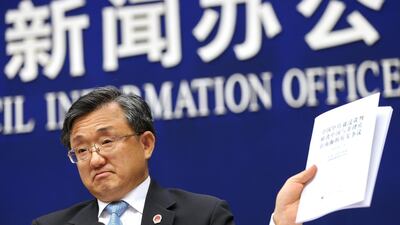A United Nations-backed tribunal’s decision that China has no legal basis on which to claim historic rights to much of the South China Sea has increased tensions in the war of words in that region. The decision in favour of a claim by the Philippines has been warmly welcomed by Vietnam and Japan, which have similar claims. Given that Indonesia, Malaysia and Brunei also have territorial disputes with China, Beijing is effectively pitted against all its neighbours in the region. This, of course, raises serious concerns about stability and security in the South China Sea and beyond.
At issue is the right to resources within China’s “nine-dash line” that extends hundreds of kilometres south and east of its island province of Hainan. The five-member panel at the Permanent Court of Arbitration in The Hague ruled that it had jurisdiction in the case even though China had said that “it will neither accept nor participate in the arbitration unilaterally initiated by the Philippines”. Yesterday, China ramped up the rhetoric, warning its rivals not to turn the South China Sea into a “cradle of war” and threatening to set up an air-defence zone there. The United States responded that the world expects China to commit to nonmilitarisation. Any military escalation would be disastrous.
An estimated $5 trillion (Dh18.36tn) of trade passes through the disputed waters, so the economic stakes are high and this is a significant win for the Philippines. But from China’s point of view, accepting the decision would affect its claims to exploit fisheries and other lucrative natural resources.
Negotiation is the clear way forward in a dispute such as this, and it would seem that this is Manila’s preferred response. The Philippines is surely more vulnerable than China, but any resolution should be about the facts of the case and the fairness of the settlement rather than the size and heft of the contenders. The bottom line is whether China wants to set its own rules or is sincere about working with its neighbours and international arbiters to resolve the issues.

